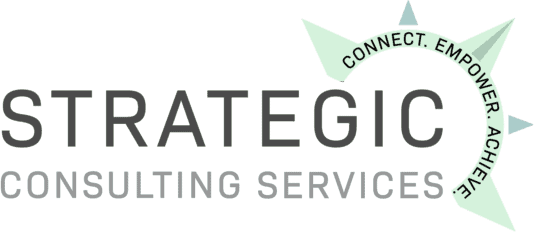In observance of Veterans Day, we recognize the profound sacrifices made by service members to defend our nation. It’s a time to reflect on our veterans’ courage, dedication, and resilience – qualities that enrich our communities and workplaces. Integrating disabled veterans into our businesses isn’t merely a tribute to their service; it’s a strategic investment. Their unique experiences and skills foster a diverse work environment, drive innovative problem-solving, and contribute to the economic health of our society. By welcoming these esteemed individuals into our professional teams, we honor their legacy while empowering our businesses to thrive with the strength and perseverance veterans exemplify.
The Untapped Abilities of Disabled Veterans
Disabled veterans are an invaluable asset in the corporate landscape, bringing forth unparalleled skills honed under the most challenging circumstances. These individuals are often adept in advanced technology, project management, and logistical strategy, skills garnered through military training and battlefield experience. Moreover, they exhibit profound leadership, teamwork, and decision-making capabilities, essential for navigating high-pressure situations with grace and efficacy.
Their resilience and adaptability in overcoming personal adversity foster an inclusive culture that inspires all employees to reach their full potential. By harnessing these unique competencies, companies can drive innovation and operational excellence, setting new benchmarks for industry standards.
Understanding Legal Frameworks & Employer Responsibilities
Navigating the legal frameworks that support disabled veterans is crucial for employers looking to foster a compliant and inclusive workplace. Key among these legislations is the Uniformed Services Employment and Reemployment Rights Act (USERRA), which safeguards military members’ civilian employment and reemployment rights. Also, the Americans with Disabilities Act (ADA) mandates non-discrimination and ensures workplace accommodation for individuals with disabilities, a category many injured veterans fall into post-service.
Employers need to understand these laws’ distinctions and their intersections. While USERRA guarantees that military service does not disadvantage veterans in their civilian careers, the ADA requires employers to provide reasonable accommodations, ensuring veterans with service-induced disabilities can perform their job functions effectively. Compliance isn’t just about meeting legal obligations; it’s a commitment to honoring veterans’ service by facilitating their successful integration into the workforce.
Accommodations and Adjustments for Disabled Veterans
Creating an inclusive environment for disabled veterans often entails specific accommodations, transforming the physical workspace and operational practices. Standard adjustments include ergonomic office equipment, flexible scheduling, or specialized software catering to veterans’ unique requirements.
Consider the case of a marketing firm that integrated speech recognition software for a veteran with a mobility impairment, significantly enhancing their productivity and job satisfaction. Another example involves a manufacturing company that provided custom noise-canceling headphones to a veteran sensitive to loud sounds, enabling them to work comfortably in a busy environment. These testimonials underscore that thoughtful, individualized accommodations are often simple to implement, yet they can profoundly impact a veteran’s ability to succeed and contribute meaningfully to the workplace.
Financial Incentives and Support: Tax Breaks and Other Benefits for Employers
Employers embracing the opportunity to hire disabled veterans are often eligible for substantial financial incentives. Notably, the Work Opportunity Tax Credit (WOTC) offers significant tax credits to businesses hiring individuals from certain target groups, including disabled veterans facing employment barriers. These credits can dramatically offset hiring and accommodation costs, enhancing a company’s bottom line.
To capitalize on these benefits, employers should complete relevant documentation during the hiring process, such as IRS Form 8850, and submit it to their state’s workforce agency within 28 days of the employee’s start date. These incentives foster a more inclusive hiring approach and deliver tangible financial advantages, underscoring the relationship between supportive employment practices and economic success.
Common Misconceptions About Hiring Disabled Veterans
Addressing hesitancy in hiring disabled veterans requires addressing some prevalent myths. Concerns around safety and increased insurance rates often arise; however, studies and workplace data refute these misconceptions. A U.S. Department of Labor report revealed no correlation between veterans, with or without disabilities, and workplace safety incidents. Moreover, insurance premiums are calculated based on verified risk factors and claims history, not employee demographics.
Employers report that veterans’ exceptional problem-solving skills and resilience often enhance workplace safety culture, contributing to efficient operations and potentially even reducing overall incidences of workplace accidents. By understanding these realities, companies can make informed, confident decisions in their hiring processes.
Mental Health and Workplace Well-being
Mental health is crucial to workplace well-being, especially for veterans transitioning to civilian employment. Employers are encouraged to foster an environment where open communication is welcomed and resources such as Employee Assistance Programs are readily available. Regular training on mental health awareness can cultivate a supportive atmosphere, acknowledging the unique experiences of veterans. Creating peer support groups or partnering with local veteran organizations can also be instrumental in building a community that nurtures resilience and mutual understanding.
Resources for Successful Onboarding of Disabled Veterans
Ensuring a seamless transition for disabled veterans into civilian roles is pivotal, and numerous resources facilitate this process. Organizations like the Department of Veterans Affairs and the Vocational Rehabilitation and Employment (VR&E) program provide tools and guidance for successful onboarding. Additionally, the Job Accommodation Network (JAN) offers valuable insights into creating accommodating workplaces promoting a holistic integration for veterans into their new professional environments.
Hiring disabled veterans is not merely an act of social responsibility but a strategic business decision. These individuals bring unique skills, strengths, and perspectives, enhancing workplace diversity. Legal frameworks provide a structured approach to inclusion, and financial incentives further reward businesses. Debunking misconceptions opens doors to untapped potential, ensuring a wholesome work environment. Embracing this inclusive approach propels economic growth, enriches company culture, and honors the service and sacrifices of our veterans.
trategic Consulting is Your Partner in Managing Workplace ADA Issues
Our team is here to help with your disabilities accommodation issues, vocational rehabilitation needs, ergonomic evaluations, and other employee needs.
For twenty years, we have been helping companies in the Pacific Northwest with worker injuries, disabilities, and other vocational challenges. We are here to support you in this unprecedented era of teleworking and WFH.
We have partnered and provided solutions to some of the largest companies in the world (such as Boeing, Microsoft, and Amazon). But, at our core, we are still “people taking care of people,” one project at a time. Our success is built upon and providing you the best solution to your workplace challenge. Contact us today by filling out a form (below), submitting a referral, or visiting our ‘Contact Us‘ page to find your nearest office.

Ric has been working in the industry since 2002, specializing in developing employer jobsite analysis and light duty programs, ergonomics consultations and adjustments, disability accommodations and providing effective return to work solutions. Ric is Matheson trained in Ergonomics and is a Certified Ergonomics Evaluation Specialist. He earned a Bachelor of Arts Degree in Psychology from Western Washington University and later his Master’s Degree, M.Ed., Education Counseling from Seattle Pacific University. Ric is currently a Registered Vocational Rehabilitation Counselor for the Department of Labor and Industries and has been a Certified Disability Manager Specialist since 2006.

